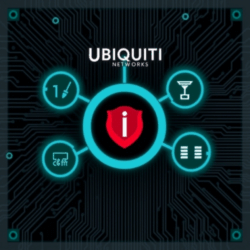
In the rapidly evolving landscape of network security, new threats constantly emerge that demand immediate attention. Recently, a significant vulnerability has been identified impacting Ubiquiti UniFi Access devices, posing a considerable risk to organizational security and data integrity.
Understanding Command Injection
Before diving into the specifics, it’s crucial to understand the nature of this threat: Command Injection. This is an attack where the goal is to execute arbitrary commands on the host operating system through a vulnerable application. It typically occurs when an application passes user-supplied data, such as information from forms, cookies, or HTTP headers, unsafely to a system shell without sufficient input validation. If successful, the attacker’s commands are usually executed with the same privileges as the vulnerable application itself. This differs from code injection, as the attacker extends the application’s existing functionality to execute system commands, rather than injecting new code.
The Critical Threat: CVE-2025-27212
The vulnerability at hand is officially tracked as CVE-2025-27212. It stems from a fundamental error in input validation within Ubiquiti UniFi Access devices. This oversight allows a malicious actor to craft specific input that the device fails to properly sanitize, leading directly to the execution of arbitrary commands.
This flaw is not merely significant; it carries a Critical Severity rating with a CVSS v3.0 base score of 9.8 out of 10, demanding immediate attention from IT professionals and network administrators. The implications are vast and severe. A successful exploitation could lead to a range of devastating scenarios:
- Full system compromise.
- Data exfiltration, potentially stealing sensitive information if the UniFi device has access to relevant network traffic or connected systems.
- Denial-of-service (DoS) attacks, disrupting critical network operations.
- Establishment of persistent backdoors or rootkits on compromised devices, ensuring continued unauthorized access.
- Network reconnaissance and lateral movement, allowing attackers to map internal networks and identify other vulnerable systems for further compromise.
- Malware deployment, serving as a conduit for ransomware, cryptominers, or other malicious software.
It’s also worth noting that another critical Command Injection vulnerability, CVE-2024-27981, was discovered earlier in self-hosted UniFi Network Servers running on Linux, affecting versions 8.0.28 and earlier of the UniFi Network Application. This vulnerability, rated 9.1 CVSS, required administrator-level credentials for exploitation and could lead to privilege escalation to root level on the host device, enabling data theft, malware installation, or disruption of network operations.
What Needs to Be Done: Remediation and Mitigation
Addressing these critical vulnerabilities, particularly CVE-2025-27212, is paramount for maintaining robust network security. Ubiquiti is expected to release patches to address these flaws. Immediate and proactive actions are essential:
- Prioritize Patching: The most critical step is to immediately apply any official security updates or firmware patches released by Ubiquiti addressing this vulnerability. Organizations are strongly advised to update their UniFi Network Application to version 8.1.113 or later to mitigate CVE-2024-27981, for example.
- Network Segmentation: Isolate UniFi Access devices on a separate network segment with strict access controls. This limits an attacker’s ability to move laterally across your infrastructure if a device is compromised. For instance, a staff network can be separated from a student network to minimize unauthorized access, and servers containing sensitive information can be segregated.
- Regular Firmware Audits: Implement a process for regularly checking the firmware versions of all network devices and applying updates promptly. Automated OS updates, for example, running weekly, can help maintain system integrity and security by applying the latest patches and bug fixes.
- Strong Access Controls: Ensure strong, unique passwords are used for all administrative interfaces, and consider implementing multi-factor authentication (MFA) where available. Access rights should be assigned based on the principle of least privilege, ensuring users have access only to the information necessary for their roles and responsibilities.
- Intrusion Detection/Prevention Systems (IDPS): Deploy and configure IDPS solutions like Snort or Suricata to monitor network traffic for suspicious activity indicative of exploitation attempts against UniFi devices.
- Log Monitoring: Centralize and regularly review logs from UniFi devices and other network infrastructure for unusual commands, login attempts, or configuration changes. Tools like Splunk or ELK Stack can be used for Security Information and Event Management (SIEM) for log analysis.
- Penetration Testing & Vulnerability Assessments: Conduct regular penetration tests and vulnerability assessments using tools like Nessus or OpenVAS to proactively identify and address security weaknesses.
Your Security with Blue Chip Technologies
At Blue Chip Technologies, we understand the complexities and constant vigilance required to protect your digital assets. For our valued clients, rest assured: if your Ubiquiti equipment is managed by Blue Chip Technologies, there is nothing to worry about concerning these updates. We proactively monitor security advisories and take care of all necessary firmware and application updates as part of our comprehensive managed services. Your network security is our top priority, and we ensure your systems are protected against the latest threats.
For interested parties looking to enhance their network security posture or migrate their Ubiquiti equipment to a fully managed environment, we invite you to reach out. Our expert team is ready to discuss how we can safeguard your infrastructure. You can contact our sales team at contact@bluechiptt.com or call us directly at 1 (868) 609-2288 for a further discussion.
The discovery of critical vulnerabilities like CVE-2025-27212 serves as a stark reminder of the continuous need for vigilance in network security. Proactive vulnerability management, regular updates, and comprehensive network monitoring are not merely best practices; they are essential defenses against rapidly evolving cyber threats. Stay informed, stay secure.

![Ubiquiti Insider: UniFi OS 3.2 | Improved Site Manager | UniFi 7 [Jan 2024] hqdefault-14](https://www.bluechiptt.com/wp-content/uploads/2024/01/hqdefault-14-150x150.jpg)





